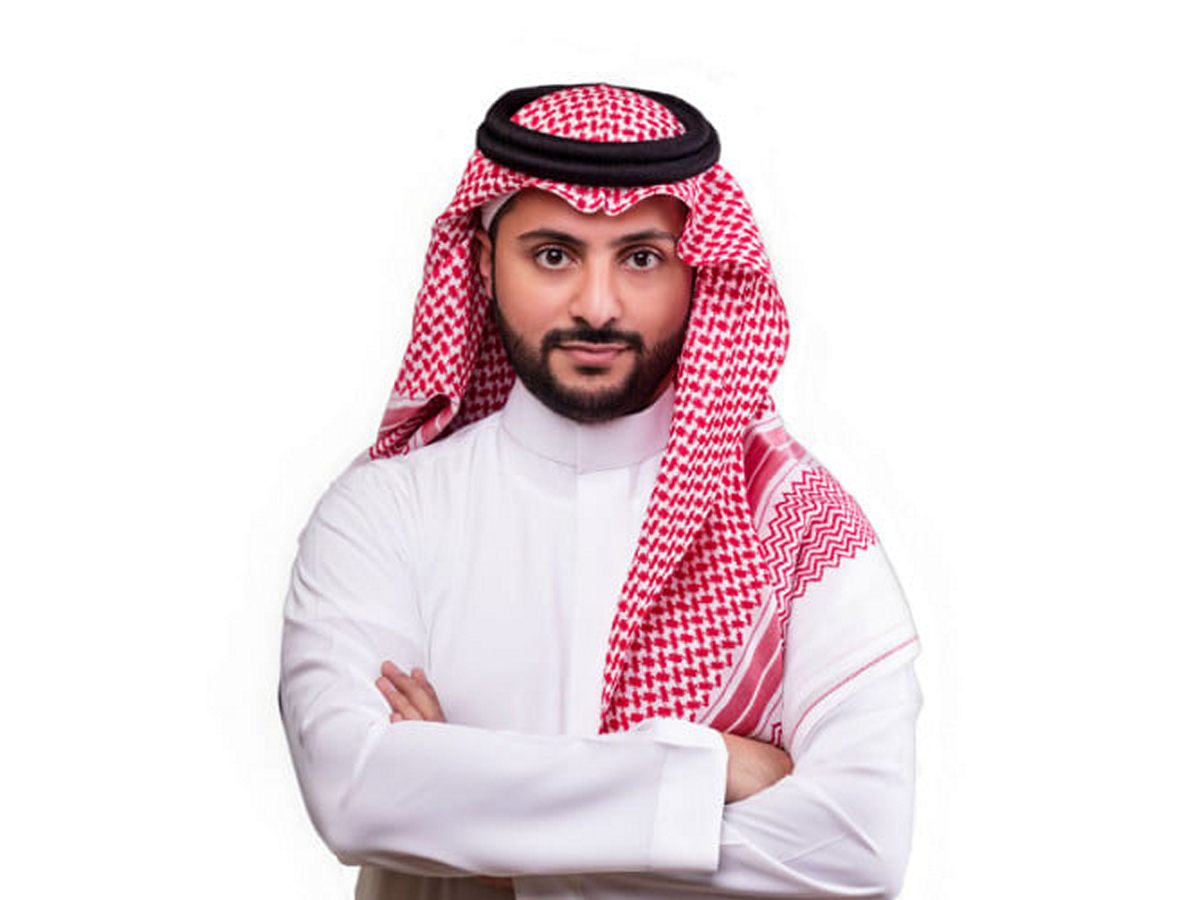The 11-Year History of HungerStation
03 June 2024•
Established by Ebrahim Al-Jassim and Hossein Bukhamseen in 2012, HungerStation was the first online food-ordering platform in Saudi Arabia.
When we look back with 20/20 hindsight, it seems obvious to create a food-delivery startup; but it wasn’t so obvious back then. When we take a moment to step back in time, we realize what an endeavor this would have been in 2012.
Hungerstation launched four years before Saudi Arabia’s Vision 2030 was launched, which heralded a new age of entrepreneurialism, a drive towards a more digital and cashless economy. But before 2016, the digital and tech sector in Saudi Arabia was barely in its nascent stages, lacking governmental policies and general readiness for such technological pursuits.
It was after Vision 2030, for example, that saw the first big acquisition and exit of a Dubai-based e-commerce company with a significant presence in Saudi Arabia; Amazon acquired Souq. com in March 2017 for a reported $700 million, though exact figures were never disclosed. It was around this time that many started to see that locally-grown startups could also taste this success for themselves.

In frame: Ebrahim Al-Jassim, Co-Founder of HungerStation
Riding the Wave of Saudi’s Digital Revolution
The data tells the story well of how far Saudi has come in the past decade. Back in 2012, only 54% of Saudis used the internet, compared to 100% today. There were only 14.3 million smartphone users in the Kingdom in 2013, a mere 45% of the population. Today, there are more smartphones in use in the Kingdom, than there are people - and there is a captive consumer base of 37 million inhabitants.
It is a Kingdom full of digitally-savvy youth, who are working and living modern lives. And with modern lives, comes the desire for convenience and modern applications such as food delivery - either to your home or to work. As the social fabric is changing in Saudi Arabia, it has also heralded a digital revolution.
Infobyte: Drivers for Saudi Arabia’s Digital Revolution (2012-2023)
The Power of the Saudi Female Consumer
All of these internet businesses also benefited from socio-economic changes and the tailwinds that were created during this time. For example, back in 2013, though 57% of Saudi women received university degrees, 78% of female university graduates were unemployed. Before Vision 2030 brought sweeping reforms, women could not drive and few women entered the workforce. In the past 10 years, female unemployment has halved from 34% to 14%. What does this all mean, and how does it impact food delivery? Simply put, women entering the workforce in Saudi meant that more women had disposable income, busier lives, and less time to cook at home, creating more demand for HungerStation’s offering.
Meeting Customer’s Appetite with Advanced Technologies
At its core, HungerStation was conceived to address a gap in the Saudi market; namely, the need for a comprehensive, efficient, and user-friendly online food delivery service. In the early days, the founders faced regulatory hurdles and consumer skepticism towards online transactions, further exacerbated by inefficient customer-restaurant communication, limited culinary options, delayed deliveries, and the absence of streamlined methods to browse restaurant menus. Despite these obstacles, HungerStation successfully laid the groundwork for what would become a digital delivery powerhouse. HungerStation’s significant growth has been primarily driven by its laser focus on catering to customer needs and preferences. This north star has been reiterated time and again over the years through various initiatives undertaken by the HungerStation team.
Firstly HungerStation made a strategic move to Google Cloud in 2018, to address the limitations of its existing infrastructure which hindered growth and service reliability. This transition to Google Cloud helped to dramatically transform its operational capabilities, more than doubling its capacity for daily deliveries and nearly eliminating customer-facing downtime. Using Google Cloud also laid the groundwork for a sophisticated analytics strategy. By adopting a “data mesh” approach with BigQuery, the company improved decision-making and innovation capabilities which allowed them to accelerate the rollout of new features, such as subscriptions, order tracking, and a new grocery service.
In 2021, HungerStation formed a partnership with Deliverect, a prominent SaaS company, to minimize operational failures and eradicate order inaccuracies for both sizable and smaller dining establishments, thereby expediting the order preparation phase and significantly reducing delivery times. Deliverect helps restaurants reach more customers by enabling them to easily manage their online orders from a single screen by integrating them into their existing POS, increasing operational efficiency and staff productivity while minimizing errors.
How AI is helping you choose your next meal
More recently, in 2023, Hungerstation ventured into AI intending to simplify the often indecisive process of choosing a meal. The dilemma of choosing what to eat often consumes more time than the act of eating itself. A study by Seated revealed that the average adult dedicates approximately 132 hours annually to browsing menus online—a significant testament to the indecisiveness that plagues our meal decisions. Partnering with Wunderman Thompson, HungerStation introduced a solution that leverages the subconscious mind to aid customers in navigating their cravings more intuitively. Drawing inspiration from cognitive studies, this tool employs Vision AI and Topic Modelling AI, utilizing the camera on a user’s device to track eye movements across various cuisines presented within the app. This high-tech approach not only identifies but also prioritizes food preferences based on where the user’s gaze lingers longest, offering a tailored list of local restaurants that match customers’ subconscious desires.
This innovation marks a significant step towards “Zero UI” interfaces, where interaction is based on natural human behaviors like voice, movement, or even thought, paving the way for a more seamless and efficient ordering experience. HungerStation’s “Subconscious Order” campaign won the Grand Prix in Creative Commerce at the Cannes Lions International Festival of Creativity in 2023. The initiative not only showcases HungerStation’s position as a pioneer in the food delivery industry but also represents a broader shift towards compressed commerce, where the path from inspiration to purchase is as direct as possible.
More Than Meals: HungerStation Adds Grocery
HungerStation also expanded its offering branching out to grocery delivery during the COVID-19 pandemic. The genesis of HungerStation’s “Quick Market” was born out of the necessity to meet surging demand for food products and groceries during this period. Available 24/7, Quick Market offers an extensive range of more than 7,000 products, ensuring that essentials like food items and household goods are just a few clicks away. Boasting record delivery times as short as 8 minutes and averaging between 20 minutes to an hour depending on location. Quick Market has now delivered an impressive tally of over 10 million orders (from 2020 to June 2023).
HungerStation’s Funding & Acquisition Journey
Rocket Internet’s subsidiary, Foodpanda, a leading online food delivery startup established in both Europe and Asia Pacific, announced its acquisition of HungerStation in Saudi Arabia for an undisclosed sum in 2016. At the time of the acquisition, the combined entity boasted an expansive network of over 2,000 restaurants across 30 cities in the country, signaling a major consolidation move in the region’s food delivery sector. The Middle East had long been a region of interest for Rocket Internet; in prior years, it had established hellofood.sa and hellofood.jo in Saudi Arabia and Jordan, while operating 24h.ae in the UAE food delivery market.
The acquisition narrative took another turn later that year when Foodpanda itself was acquired by another global giant in food delivery services, Delivery Hero, who had also been trying to gain market share in the Middle East. Delivery Hero had already successfully acquired regional food delivery player Talabat, one year prior. This transition marked the beginning of a new chapter for HungerStation, integrating it into Delivery Hero’s expansive portfolio and setting the stage for accelerated growth and expansion.
Related: Delivery Hero Scoops Up HungerStation, Continues Global Food Delivery Domination
Fast forward to 2023, and Delivery Hero solidified its commitment to HungerStation by acquiring all remaining minority shareholdings, which amounted to 37%, in HungerStation Holding Limited. This acquisition, valued at $297 million, was not just a strategic consolidation but also a reflection of HungerStation’s exceptional financial performance in the fiscal year 2022, which saw an impressive 36% growth in revenue.
As of today, HungerStation has fulfilled more than 300 million orders, cumulatively since inception. The company has had more than 20 million app downloads, and serves more than 100 cities and townships across Saudi Arabia and Bahrain, providing significant customer reach to more than 35,000 restaurants on-boarded onto its platform.
HungerStation By the Numbers: A Quick Look
 HungerStation’s New Identity in 2024
HungerStation’s New Identity in 2024
In 2024, as HungerStation carries on evolving, it unveiled a dynamic and new rebranding initiative, symbolized by the introduction of an animated box character adorned in the company’s signature bright yellow, with the iconic ‘H’ etched on its side. This innovative mascot, first introduced through a teaser campaign that spanned social media and outdoor advertising, promised customers, “Wherever you are, I will come to you,” in Arabic, setting a playful yet reassuring tone for the brand’s new chapter.

Officially revealed on January 7, 2024, across HungerStation’s social media channels, the mascot quickly became a cornerstone of the brand’s identity. Accompanied by the motto “Before Everyone” in Arabic, it underscores HungerStation’s pledge to provide prompt and reliable service, with a level of adorableness that has made HungerStation more approachable, memorable, and personable.
Looking ahead to 2024, with teasers of new stickers featuring the mascot and statements hinting at more innovations to come, HungerStation is set to continue its trajectory of growth and innovation. Under the visionary leadership of CEO Eng. Ali Damanhori, HungerStation is not just evolving its brand identity but is also steadfast in its mission to redefine convenience and connectivity in the delivery service domain, promising an exciting future for its customers and the industry at large.
Next Read: The Future of Food Delivery in Saudi Arabia: A Transformative Market on the Rise


%2Fuploads%2Fsaudi-food-delivery%2Fcover.jpg&w=3840&q=75)